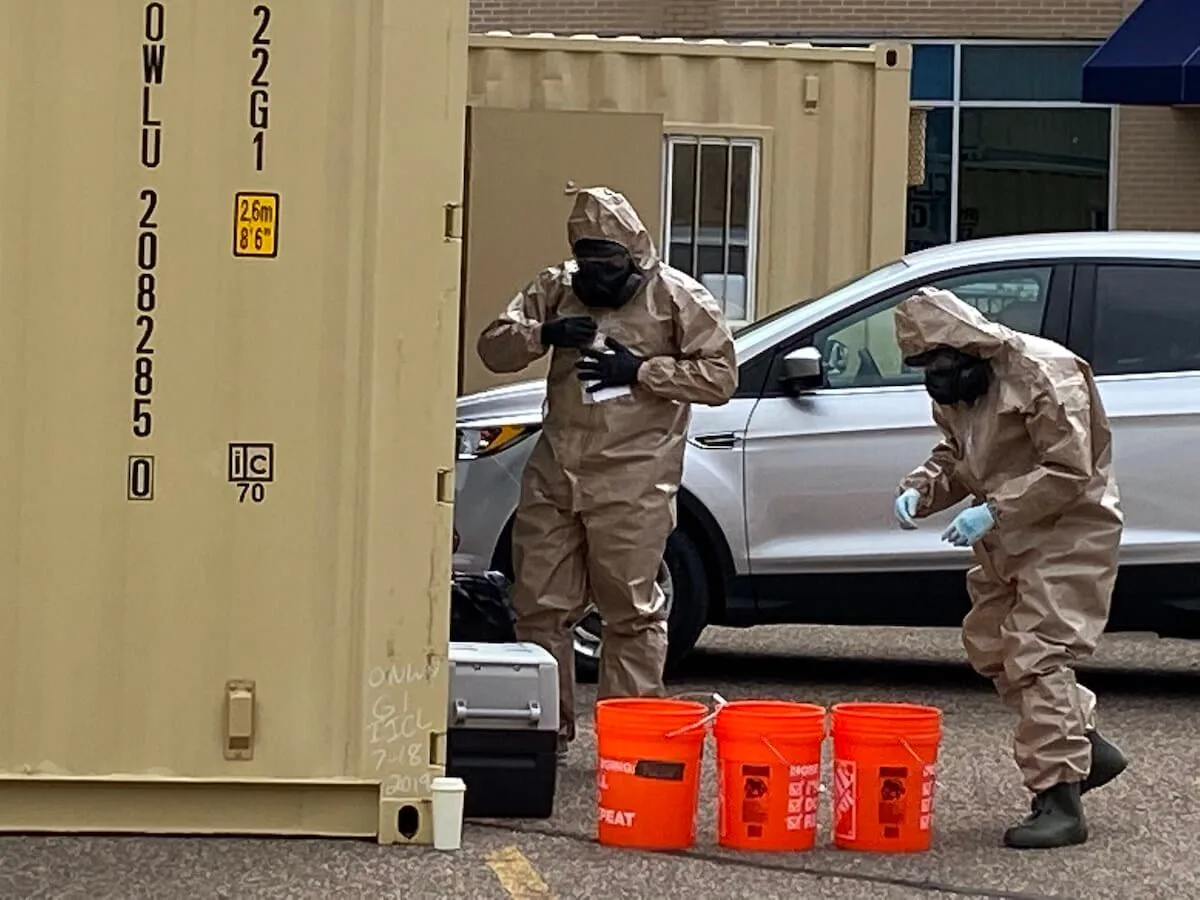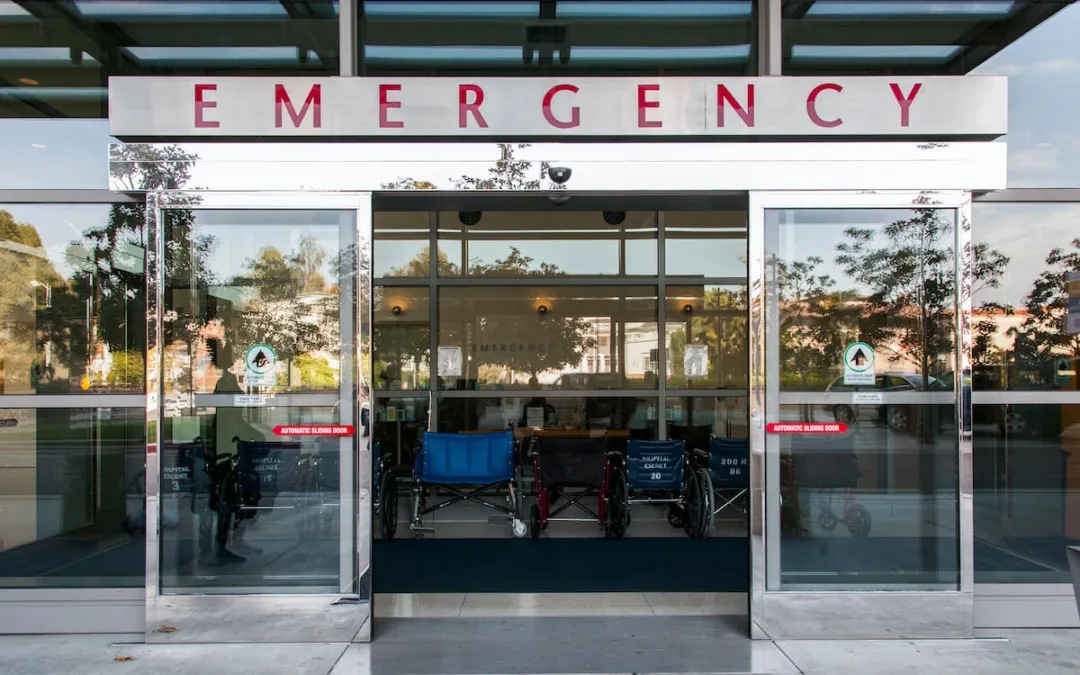
#image_title
#image_title
Coronavirus toll reaches milestone in scramble to get ahead of the outbreak
Dozens of vehicles lined an access road to the Chippewa Valley Technical College/Prevea Health site along West Clairemont Avenue in Eau Claire Sunday morning, a sign of the ramped-up testing effort which will better inform public health officials about the prevalence of COVID-19 in Wisconsin which infected its 10,000th person and claimed its 400th life over the weekend.
Brisk weather that included a few raindrops and snowflakes didn’t appear to deter people from seeking tests for the virus. People began showing up at 6:45 a.m., and by shortly after 8 a.m. two long lines of vehicles slowly made their way forward as local public health workers, donning personal protective equipment, directed them to National Guard members, who administered tests.
“It’s good to see a lot of people here,” said Lieske Giese, Eau Claire City-County Health Department director. “We’re hoping to get as many people here as we can.”
Eau Claire and Dunn County health departments partnered with the National Guard and HSHS/Prevea Health for a two-day testing blitz which Giese and others said they hope will enable health officials to better assess the spread of COVID-19 in the region. Testing scheduled for Sunday and Monday in Eau Claire could test as many as 300 people each day, she said.
The effort being led by the state Department of Health Services to increase testing for the virus in more parts of Wisconsin is meant to slow down the human toll of the coronavirus outbreak which has now claimed 400 lives according to Sunday’s report from DHS. The death toll has risen 16 since Friday’s report. Calumet County reported its first fatality.
In all, 10,219 people in Wisconsin have tested positive for the coronavirus. Of those, 1,820 have required hospital care. Brown County is dealing with an outbreak largely tied to area meatpacking plants. There were 63 new cases in Sunday’s report, 57 on Saturday, 71 on Friday. Over the past seven days, Brown County health officials have discovered 476 new COVID-19 cases, topping Milwaukee County (610) and Racine County (245) for positive tests over the past seven days.
The testing sessions being conducted by DHS and the Wisconsin National Guard are free and participants are not required to have medical insurance or a health care provider.
Evers said determining the extent of COVID-19 in the state is key to figuring out how best to resume business operations and other activities curbed with the implementation of his safer-at-home order issued March 25 and extended last month until May 26.
Tracking who has the virus is key to limiting its spread, Giese said. Testing numbers across much of the state have been relatively low, and if health officials don’t know who has the illness, they can’t quickly halt its spread, she said.
“We have to better understand how prevalent the disease is here,” she said, “so we can better contain it.”
More accurately gauging the frequency of COVID-19 in the Chippewa Valley and the rest of the state is especially important as people tire of stay-at-home rules prohibiting them from public gatherings, said Dr. Ken Johnson, Chief Medical Officer of Prevea Health and an emergency room physician at HSHS Sacred Heart and St. Joseph’s hospitals in Eau Claire and Chippewa Falls, respectively.
“People are getting isolation fatigue,” he said. “They don’t believe COVID-19 poses a danger.”
Dunn County Health Department Director K.T. Gallagher agreed, noting she is aware of increased instances of people ignoring stay-at-home regulations.
“People need to know this virus is still out there,” she said.
Frustrations with the safer-at-home extension and its adverse impact on businesses have prompted protests and a lawsuit filed with the state Supreme Court by Republicans. The court heard arguments last week on the matter.
Evers recently announced using the National Guard at sites where outbreaks of the virus are occurring statewide as well as to boost testing capacity, especially in some regions where relatively few tests had been performed. During the past week multiple communities across northwest Wisconsin have held testing events similar to the one in Eau Claire. Testing will continue on Wednesday at Thorp High School from 11 a.m. to 7 p.m. and on Thursday in Ladysmith at the Rusk County fairgrounds, also from 11 a.m. to 7 p.m.
Public health officials are urging anyone experiencing COVID-19 symptoms to seek testing. Those symptoms include cough, shortness of breath, fever, chills, muscle pain, headache, sore throat and loss of taste or smell.
Previously testing was reserved for those exhibiting the most serious symptoms because of a shortage of testing materials. State officials are working to boost available test supplies, and the situation has improved, public health officials said.
“We’ve made great progress in expanding our testing capacity these last few weeks, and now we’re taking the next step to help connect Wisconsinites who have symptoms of COVID-19 to testing sites in their communities,” Evers said in a news release announcing an expansion of testing.
Politics

Biden administration bans noncompete clauses for workers
The Federal Trade Commission (FTC) voted on Tuesday to ban noncompete agreements—those pesky clauses that employers often force their workers to...

Opinion: Trump, GOP fail January 6 truth test
In this op-ed, Milwaukee resident Terry Hansen reflects on the events that took place on January 6, the response from Trump and other GOP members,...
Local News

Readers Poll: Top Bowling Alleys in Wisconsin
Looking for the best bowling in Wisconsin? Look no further! Our readers have spoken in our recent poll, and we have the inside scoop on the top...

8 Wisconsin restaurants Top Chef judges are raving about
Top Chef’s 21st season is all about Wisconsin, and on-screen, it’s already apparent that the judges feel right at home here. But, while filming in...




